The Philosophy of The Lord of the Rings
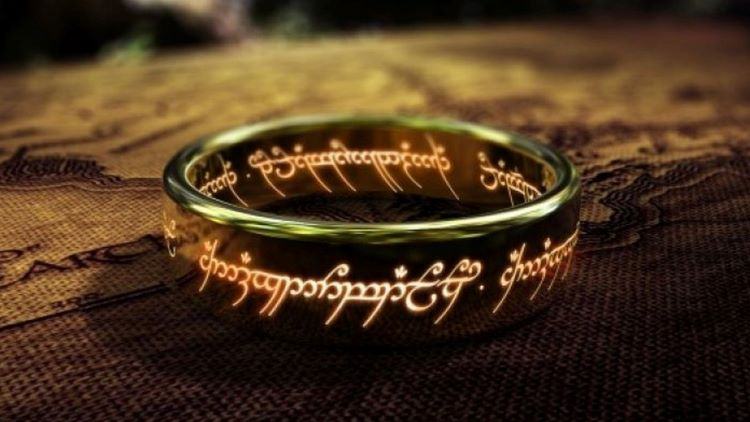
Featured image: 'One Ring to rule them all, One Ring to find them, One Ring to bring them all and in the darkness bind them.' (New Line Cinema)
The Lord of the Rings is arguably one of the greatest pieces of literature ever produced. It defined the fantasy literature genre; few works since have been able to reproduce the detail and vastness of his worlds. Written in the 20th century—mostly during World War II—and divided into six books, J.R.R. Tolkien narrates a terrible conflict between the various races of Middle-earth, all of whom have been stirred into violent turbulence by the alluring power of the One Ring.
While set in a fictional Middle-earth some 6,000 years ago, The Lord of the Rings tackles troubles facing humanity even today. Tolkien’s story grapples with intrinsically human themes, such as good and evil, power, love, loss, courage, duty, and companionship, while invoking deep-seated religious, mythological, and philological symbols. Tolkien took inspiration from Norse mythology and, as an academic and a speaker of many languages, he invented a language, Quenya, and various different alphabets for his Middle-earth tales, pouring them onto the books’ pages as romantically imbued poetry.
The books were expanded into moving-picture format at the start of the 21st century by Peter Jackson, who divided the story into three award-winning films. They continue to reach huge audiences along with the novel and film trilogy of The Hobbit. Collectively, they carry on promulgating Tolkien’s fantastical answers to the urgent moral, political and cosmological issues facing humanity—even today, through Amazon adaptations, social media, role-playing games, and legions of nerds continuing to light the Beacons. And, I argue, these stories’ appeal actually owes much to some key but widely unacknowledged philosophical concepts.
Politics in Middle-earth
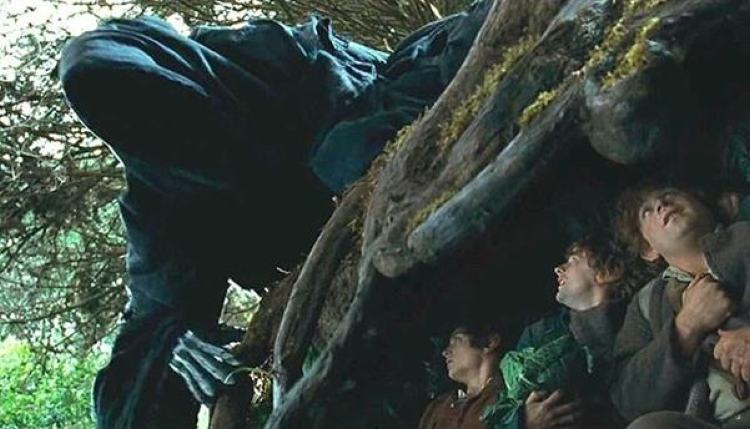
Disturbers of peace: Simple and pure-hearted hobbits, who mostly like to dance, drink ale, and eat country-vegetable pies, hide from a terrifying Ringwraith (Nazgûl), who is after the One Ring. The hobbits never sought to provoke trouble; it came to them. Still, something must be done if 'good' is to prevail.
Politics concerns the distribution of power over people. Political philosophy concerns how best to achieve that. The relevant question, then, is how should Middle-earth be ruled?
Dark Lord Sauron takes it upon himself to be the one who decides how things should be. While what he sets out to achieve is not given much detail by Tolkien, it is clear that he is able to garner huge supportive forces by enlisting vast, terrifying armies. Democracy isn’t really a thing here anyway, mind: medieval-esque royalty is, which people appear to support.
The issue is that the One Ring, which was forged by the Dark Lord Sauron, is corruptive. All who care nothing for power and just want to exist aren’t safe from trouble, for they have nowhere to hide amidst a great war. All who possess ideas of how things ought to be are lured by the power the Ring confers: with it they would be able to set Middle-earth right for their own people (as Boromir of Gondor thought). While this aspiration seems overtly self-concerned, many people surviving in below-modest conditions probably just covet comfort and safety. There’s a lot stake for the people of Middle-earth. So promises of better lives—of riches, of new lands, and so forth—are alluring.
But ideologies will invariably clash. Whether one’s desire is to do good or not, in power they presume that their ideology should prevail over others’.
For the most part people are out to protect their own kind; and they only react to the troubles when their communities are under threat. Born of ill or righteous will—who can say? But we can surely respect their duty. As Faramir, standing over a dead Haradrim soldier, solemnly remarks:
Really, what is a desire to do ‘good’?
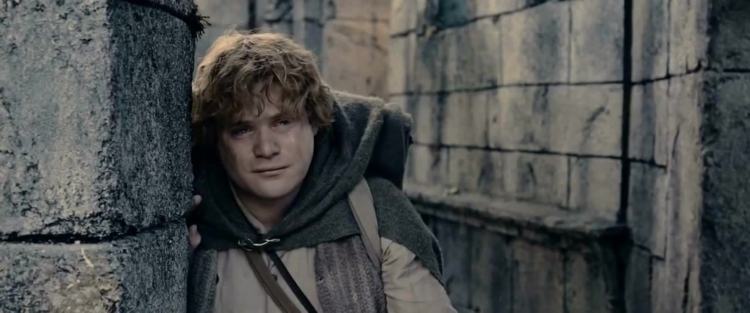
The biology of evil: 'It's all wrong. By rights we shouldn't even be here. But we are. It's like in the great stories, Mr. Frodo—the ones that really mattered. Full of darkness and danger, they were. And sometimes you didn't want to know the end … But in the end, it's only a passing thing, this shadow. Even darkness must pass. A new day will come. And when the sun shines it will shine out the clearer. Those were the stories that stayed with you; that meant something, even if you were too small to understand why. I think, Mr. Frodo, I do understand. I know now. Folk in those stories had lots of chances of turning back only they didn't because they were holding on to something … That there's some good in this world, Mr. Frodo. And it's worth fighting for.' — A hopeful Samwise Gamgee keeps faith in fighting for what he thinks is right.
Desire for power, which the Ring instils, is a source of great trouble here. People see the prospect of using this power for the good of their own kind. But, ultimately, the power is always Sauron’s, who control all and wrest immortality from the Elves. With no trace of compassion, Sauron is able to enslave lands under false promises of sharing his ultimate power, which brings them self-served pain and doom.
The Ringbearer, Frodo Baggins, and his companions decide to destroy the One Ring and rid the world of its evil once and for all. Until the present day it had laid dormant in the shadows. Destroying it now will disarm Sauron, banishing evil and restoring peace to Middle-earth. This alliance, ‘the Fellowship’, is built on shared values and bound by a desire for ‘evil’ to be outdone—and Tolkien wants to show us that it is faith in this desire which will bring the ‘War of the Ring’ and the Third Age to their longed-for climaxes …
Spirituality
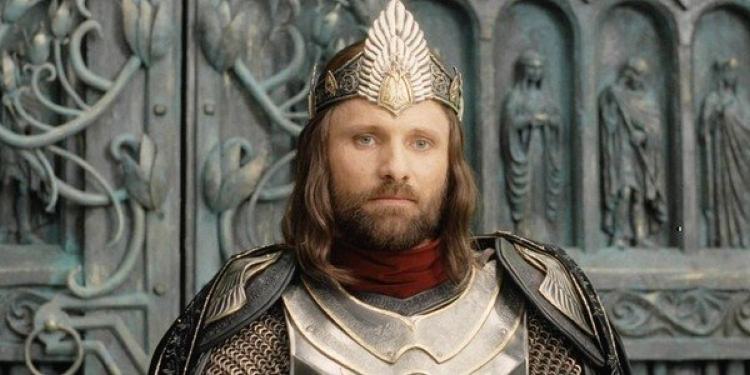
The coming of a king: Aragorn—wise, righteous, and benevolent, like Jesus, Christ the King—crowned King Elessar Telcontar of the Reunited Kingdom.
Tolkien was a deeply spiritual man. His Catholicism, in particular, was present in The Lord of the Rings. This was no mystery: he declared this work fundamentally Christian in a letter. More importantly, though, like any talented creative writer, he was able to communicate his values in the objects of his stories. Through symbols he conveyed messages and meanings for our interpretation. While Tolkien steered clear of using deliberate allegory in his work, an underlying religious nature was absorbed into the story and expressed in the characters’ journeys, languages, and moral ideals. Some examples will help.
The free people of Middle-earth long for the return of a king. Aragorn—who even looked like traditional depictions of Jesus Christ—as the rightful heir to the throne, is eventually able to give them one who can deliver the peace and justice they crave.
Tolkien was also drawn to religious terminology. He took particular inspiration from a set of Christian, Anglo-Saxon poems which used ‘Éarendel’ alongside ‘middle-earth’. Like in The Lord of the Rings, ‘middle-earth’ denotes an inhabited place of men, whilst ‘Éarendel’ (or ‘Eärendil’ in Quenya) is an Old English term for ‘ray of light’. The latter signifies John the Baptist’s ‘bright morning star’ and is a word whose ‘great beauty’ Tolkien was struck by.
Éala Éarendel engla beorhtast / Ofer middangeard monnum sended
'Hail Éarendel, brightest of angels / Sent onto mankind over middle-earth'
Tolkien even used these lines as a starting point for the legend of Eärendil. ‘Eärendil’ was the name of a Half-elven legend who lived during the First Age. You may recall that Frodo is gifted water from a fountain which held the light of Eärendil’s star by Elf Queen Lady Galadriel. The glowing water comes in handy later in his quest and is given to the hobbits along with bread (‘lembas’), which is similar to fulfilment in The Eucharist, and drink from a common cup in a farewell ritual. Angelic music plays in Lady Galadriel’s lands in the film. (Later Aragorn kneels over a dead Boromir and performs a gesture which is similar to making the sign of a cross—two Catholic symbols.)
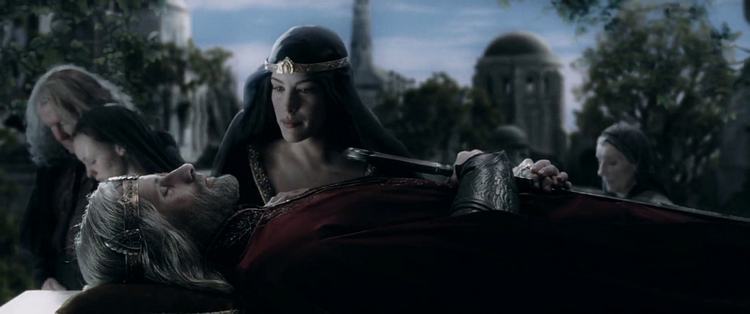
Capricious gods: Tolkien's moral philosophy in The Lord of the Rings is intertwined with Tolkien's own religious beliefs. But his gods must answer to the troubles they lay upon Man. The Half-elven Lord of Rivendell, Elrond, describes the agony his immortal daughter, Arwen (pictured), who is also Half-elven, will feel when her partner, Aragorn (also pictured), a mortal man, inevitably dies: 'If Aragorn survives this war, you will still be parted. Whether by the sword or the slow decay of time, Aragorn will die … But you, my daughter, you will linger on in darkness and in doubt … bound to your grief, under the fading trees, until all the world has changed and the long years of your life are utterly spent. Arwen, there is nothing for you here, only death.' So why did Tolkien's powerful gods see to it that this great pain should arise in people through mortality? And, more starkly, why do these gods allow terrible suffering, engendered by Sauron's great evil, to pervade Middle-earth in the first place? The gods are capable of intervening, as Eru did when he reincarnated Gandalf the Grey as Gandalf the White.
Less literally, religious themes are thoroughly woven into the story elsewhere. The War of the Ring represented a battle between good and evil and Tolkien’s philosophical point was that Christian values should prevail. On one side we have the Fellowship of meek peace-making, pure-hearted hobbits, uncharacteristically righteous men, a wise and benevolent elf, a courageous dwarf, and a pope-like wizard, who leads with no claim to rule over a land and even crowns Aragorn. On the other we have a parasitic evil which starves the lifeblood of Good.
Manifesting Evil
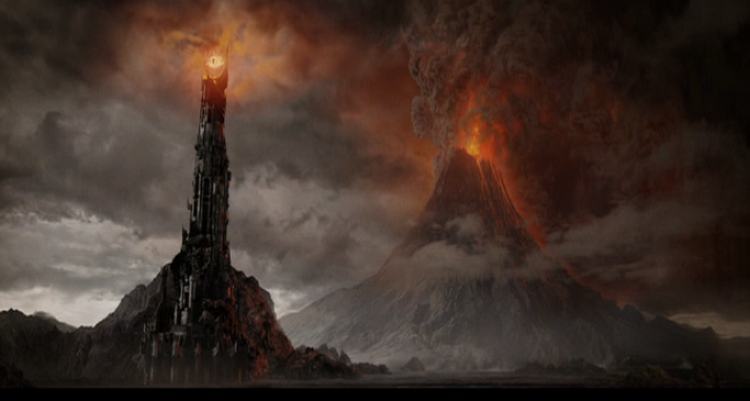
Where the Shadow lies: The Dark Tower and Mount Doom, the land of Mordor.
The onslaught of evil is led by the malicious Dark Lord Sauron, who rules from the realm of Mordor and casts Shadow with fiery fumes, torture, plague, smoke, and disease—all tropes of ill intent. (The Nazgûl even seem to mirror the Four Horsemen, who traditionally symbolise death, war, famine, and conquest.) His power is perpetuated by ugly, instinct-driven legions of soldiers who possess no greater interests than those which serve their immediate desires. Through the One Ring Sauron enslaves Middle-earth, engulfing the world with a growing evil which is parasitic to the Fellowship’s moral values. Simply put, we are told that these morals are the good ones and those morals are the evil ones. (At this stage I hope that Sauron’s satanic evil incarnate already reads familiar.)
Is Tolkien’s perspective of morality a bit simplistic? Yes. But Tolkien’s beauty is found in how he confers positive moral value to ideas and objects, not academic value, and taints the virtue of moral value of objects and ideas with his symbolism.
For example, in his writing, Tolkien literally invigorates evil by capitalising certain words, such as ‘Shadow’, as personifications of Sauron. Sauron’s ominous evil pushes Frodo to say, ‘The days are growing darker’ (literally?). Conversely, Théoden rejuvenates when he wiggles away from the turned hand of his evil sidekick, Gríma, and is illuminated by the words of the wise Gandalf the White.
Furthermore, the One Ring, the ultimate object, was just a gold ring on the face of it. But, beyond its shining superficial remit, it enticed and controlled, for it was filled with the malice and malevolence of Dark Lord Sauron. It promised power; and people fought to have it, whether that power was genuine or not. It, just a physical object, somehow brought evil, manifesting as greed and jealousy and wickedness and agitating Middle-earth into a fight for power. But it has human power, too: Bilbo physically declines when he escapes the One Ring’s hollowing and corruptive force, which sustained him for life beyond his years (‘You haven’t aged a day,’ says Gandalf the Grey). There is a magic activity to its evil.
Likewise, the shard of a Morgul-knife usually reaches the heart of the wounded victim and turns them into an evil wraith by virtue of its magical properties; but Frodo survives when stabbed by the Witch-king. The shard is removed after Glorfindel (Arwen in the films) commands water to wash away the approaching Witch-king and his fellow Nazgûl. After all of that, quite supernaturally, Frodo feels pain on the anniversary of the attack.
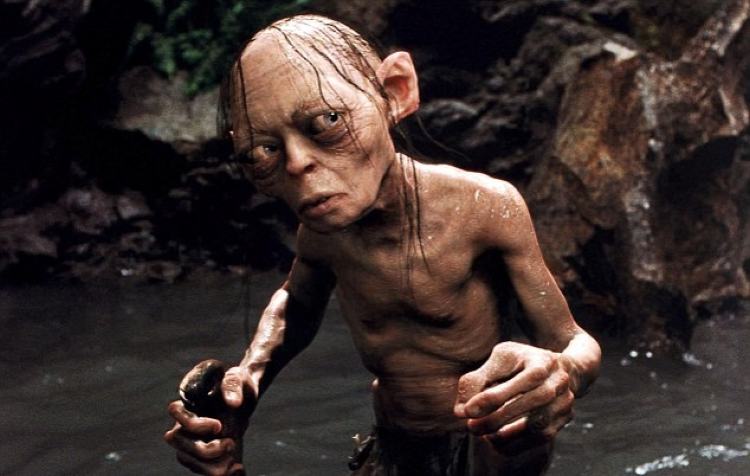
Free will and moral responsibility: Gollum's character development is more-delicately layered with questions of evil. 'Humanity' was once there, when he was Sméagol, a hobbit, before the Ring came into his hands. But he was selfish and violent and manipulative—a murderer, even. So should we think negatively of his character, as if he was a criminal? Or should we sympathise with him as a victim of the Ring. That is, how much free will did he really have? These questions, asked throughout the story, are captivating. While some will deduce that a vicious cycle of bad luck and a lack of compassion turned Sméagol into a foul beast, which is evidenced by positive the effect of Frodo gifting Gollum trust, others will argue that Sméagol never took enough responsibility of his own life, allowing himself to slip into darkness. This is a very human debate which may loosen our ill judgements of people. Gandalf the Grey, falling into this category, remarks: 'Many that live deserve death. Some that die deserve life. Can you give it to them, Frodo? Do not be too eager to deal out death in judgment. Even the very wise cannot see all ends.'
Is it right to paint opponents with such brute, malice-driven characteristics? I have previously argued that it’s not. In this case I think the happily-ever-after ending written for Aragorn’s rule reveals the credulity of Tolkien’s beliefs. Philosophically, I want to know how King Aragorn’s rule landed on solutions to a deeply complex socio-political crisis? Laden with spiritual undertones, Tolkien simply states it did. Any other ruler, realistically, would have faced all kinds of division. Yet Aragorn, in some sort of a Second Coming, happened to instil a spiritual obedience, which reveals Tolkien’s Faith but not his reasons.
Then again, enjoyable stories aren’t built with dry, academic impartiality. Moreover, with beauty not rigour, Tolkien only teaches us how ‘good’ might be yielded.
Romanticism of nature
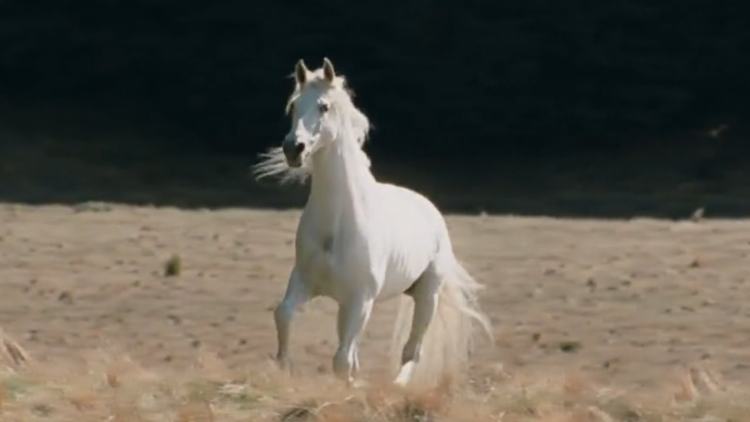
Mysticism which strikes us with awe, respect, and love of nature: 'Shadowfax. He's the lord of all horses and he's been my friend through many dangers.' — Gandalf the White [The crescendo of 'The White Rider' plays]. Was Shadowfax just an ordinary horse? Or was this lord of all horses and animal companion somehow mystical, owing to an enchanting mysticism?
Tolkien was a romanticist: his words exude the values he placed hope and faith in. While his writing, thankfully, lacks academic detail, we are, nonetheless, asked to invest in his subjective vision of ‘good’, embodied in natural objects, for the purpose of the story.
I already covered Tolkien’s relationship with spirituality, which, to him, was clearly necessary to obtain virtue. However, his symbols are steeped with non-spiritual values as well, for he was deeply in touch with nature and it showed. Middle-earth’s natural world is laced with metaphors; and, as a result, we are mystified by the ambiguity of magic, which leaves us even more drawn to nature’s magnificence. At great lengths he gave fine details about blades of grass, special trees of times gone by, and otherworldly scenery carved into terrific vales and land-breaking rivers. He grants power to these natural objects; and they are animated by the magic ambiguity of his descriptions.
For example, awe is reserved for Shadowfax, ‘lord of all horses’. Wasn’t Shadowfax just a horse? Furthermore, many Tolkien spells command help from nature, like when Gandalf uses ‘Blinding Sunlight’ to strike foes with magnified sunbeams. Then, were they really magic? Wildlife oozed out of trees to flee from the evil of Nazgûl. Or did it, really? And when the Shadow retreats—when hope returns to Middle-earth—the White Tree—the symbol of the realm of Gondor, where Men dwell—flowers again. Is this a coincidence or was there something foul in the soil? We are left positively mystified.
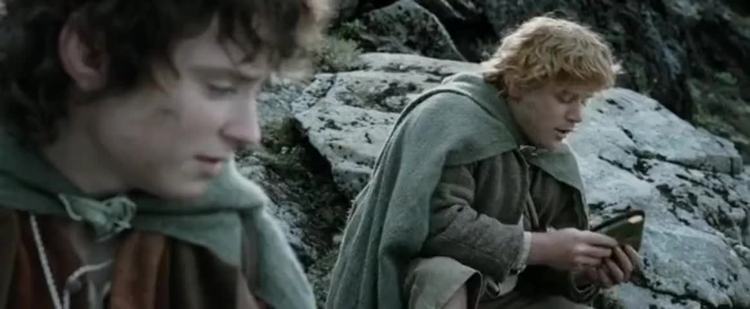
Hungry Hobbits Saved By Bread: Lembas bread holds seemingly mystical properties: a few bites can nourish an individual for days. Lady Galadriel's Elven rope, given to Sam at the same time the group receives lembas bread, is remarkably strong and can be untied with just a tug, even though it's made with just 'hithlain', the inner bark of 'mallorn' trees.
Inspired by Tolkien’s literal or symbolic values in today’s world, should we adopt the same romanticism to save our planet?
The power of Tolkien's symbolism
Are there genuinely magic spells in Middle-earth? Yes. Tolkien brought inanimate objects to life quite literally—the ancient Ents, are walking, talking trees who hate the evil orcs who mercilessly killed their kind. There’s the Army of the Dead. Hobbits grow when they consume the drink of the Ents, a potent, woody-flavoured draught. Gandalf is reincarnated. The One Ring turns its bearer invisible. Nevertheless, despite any overt magic Tolkien did deploy, there are properties and capabilities in his Middle-earth which are neither explicitly magical nor extravagant.
It is Tolkien’s symbolism which buoys our perceptions of his values and ideals. Should we feel violated by the religious themes he snuck into the story? Not at all: we learn of beauty and the point of beauty; and beauty doesn’t have to be religious.
With personal and stylistic written flair and his in-depth descriptions, his words bring possibly magic objects to life to reflect his forceful love of nature and love of that which is righteous. Tolkien was clearly spiritual and romantic: happiness in these notions bled from his words. May they bleed into our hearts, too?
All that is gold does not glitter,
Not all those who wander are lost;
The old that is strong does not wither,
Deep roots are not reached by the frost.
From the ashes a fire shall be woken,
A light from the shadows shall spring;
Renewed shall be blade that was broken,
The crownless again shall be king.
